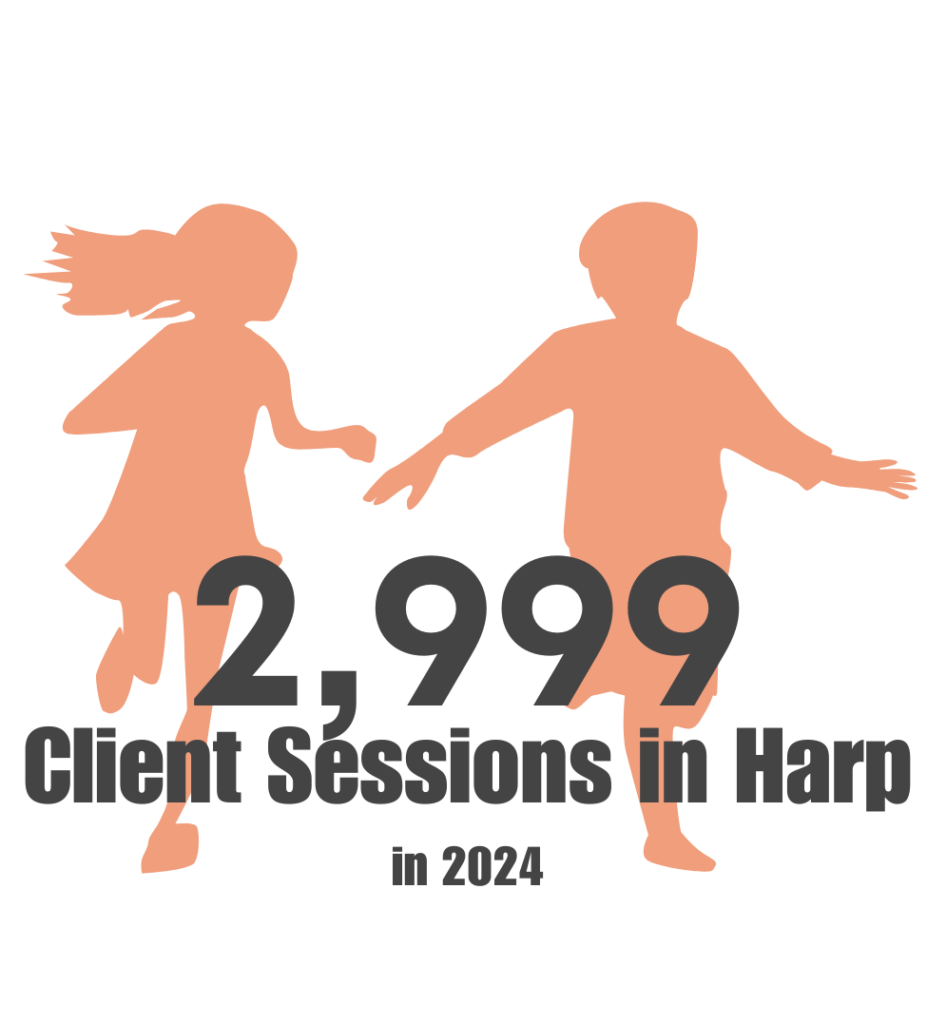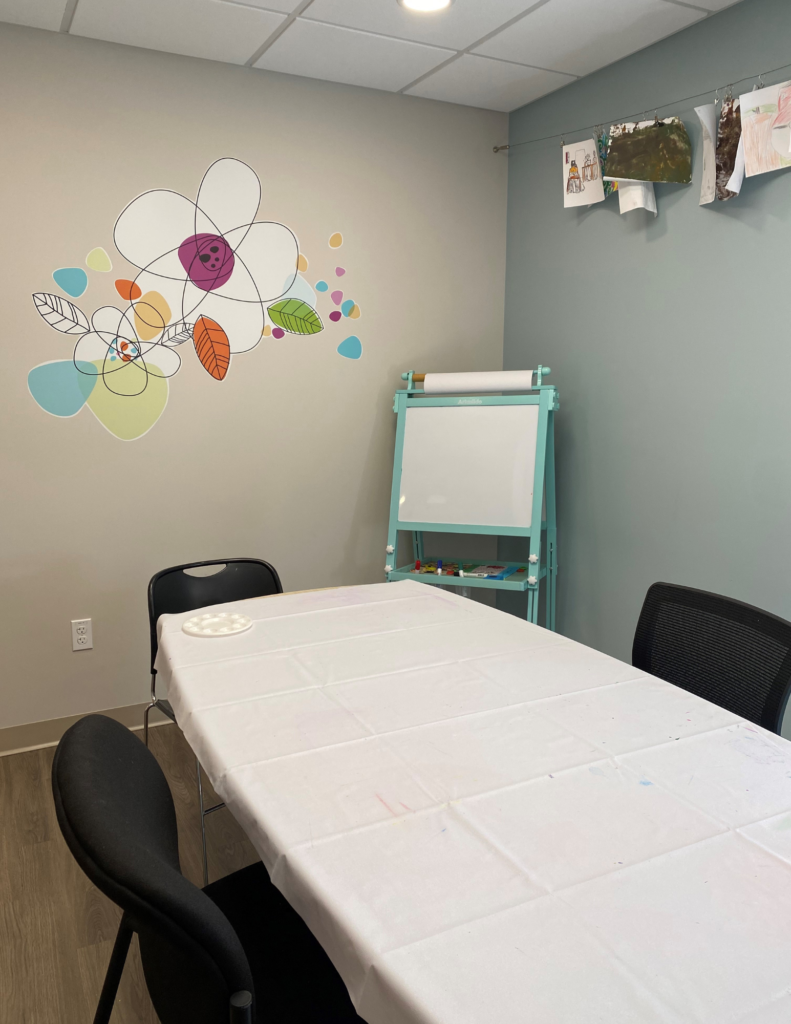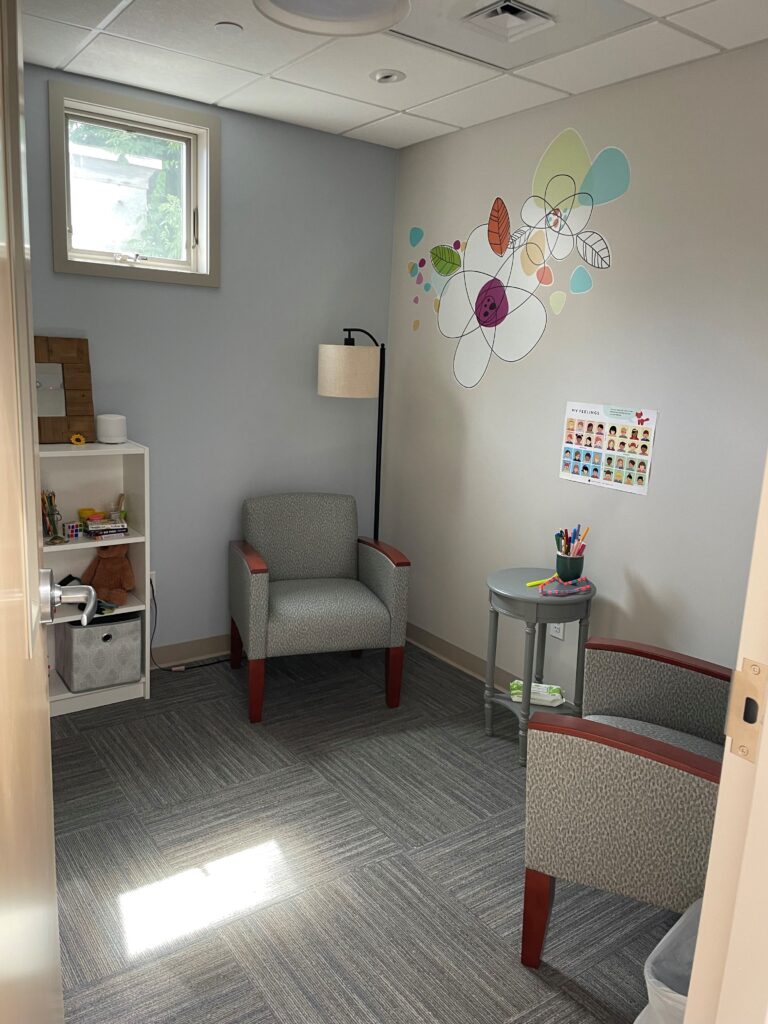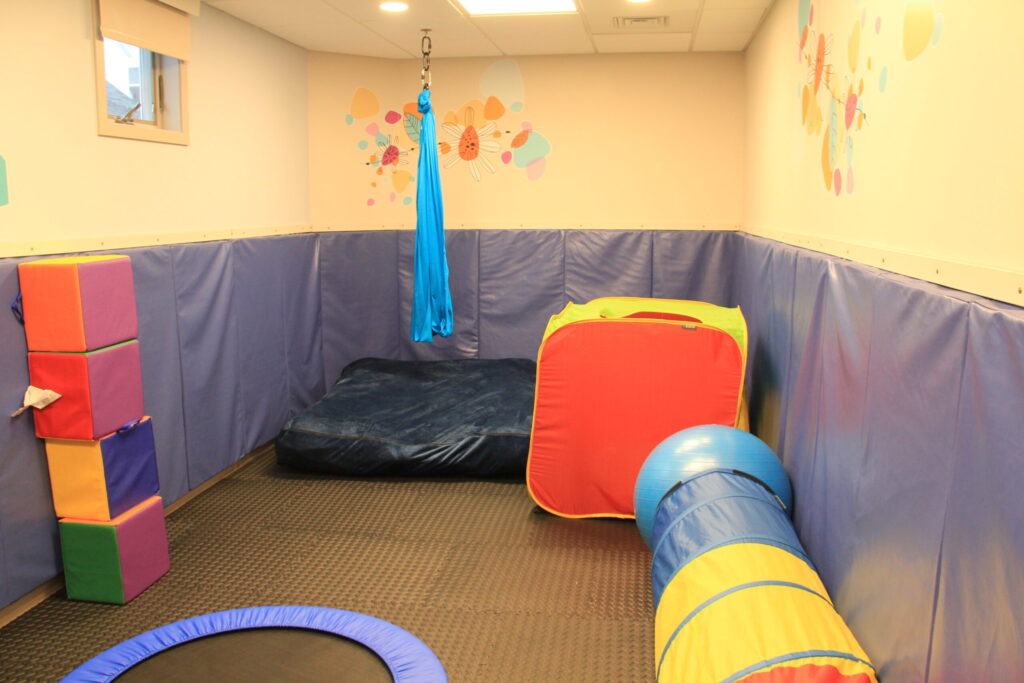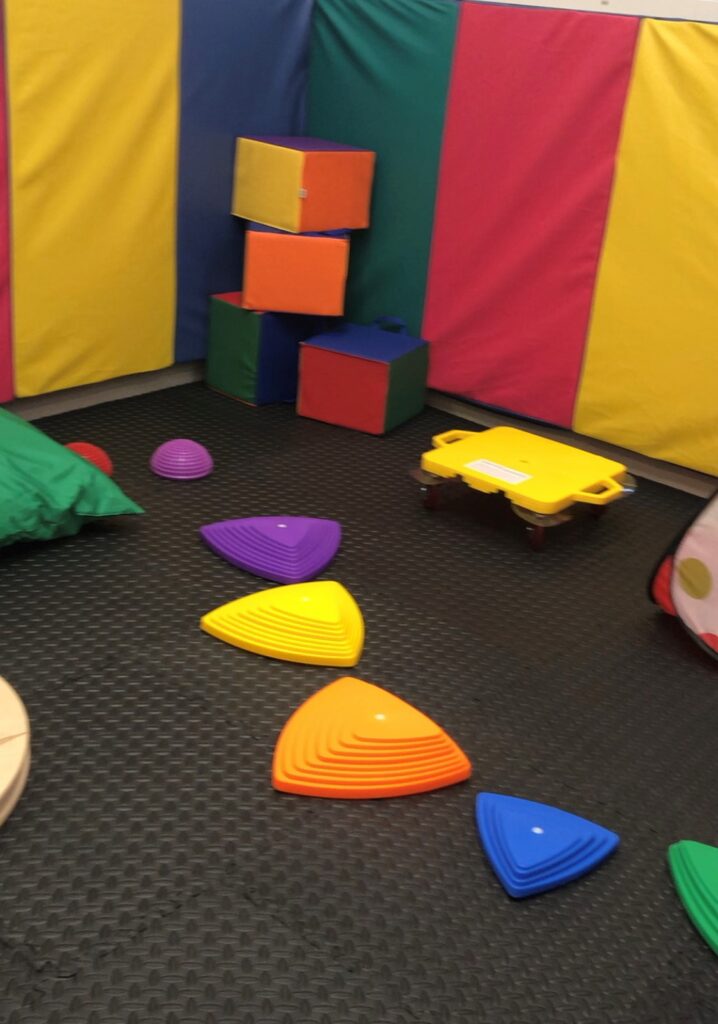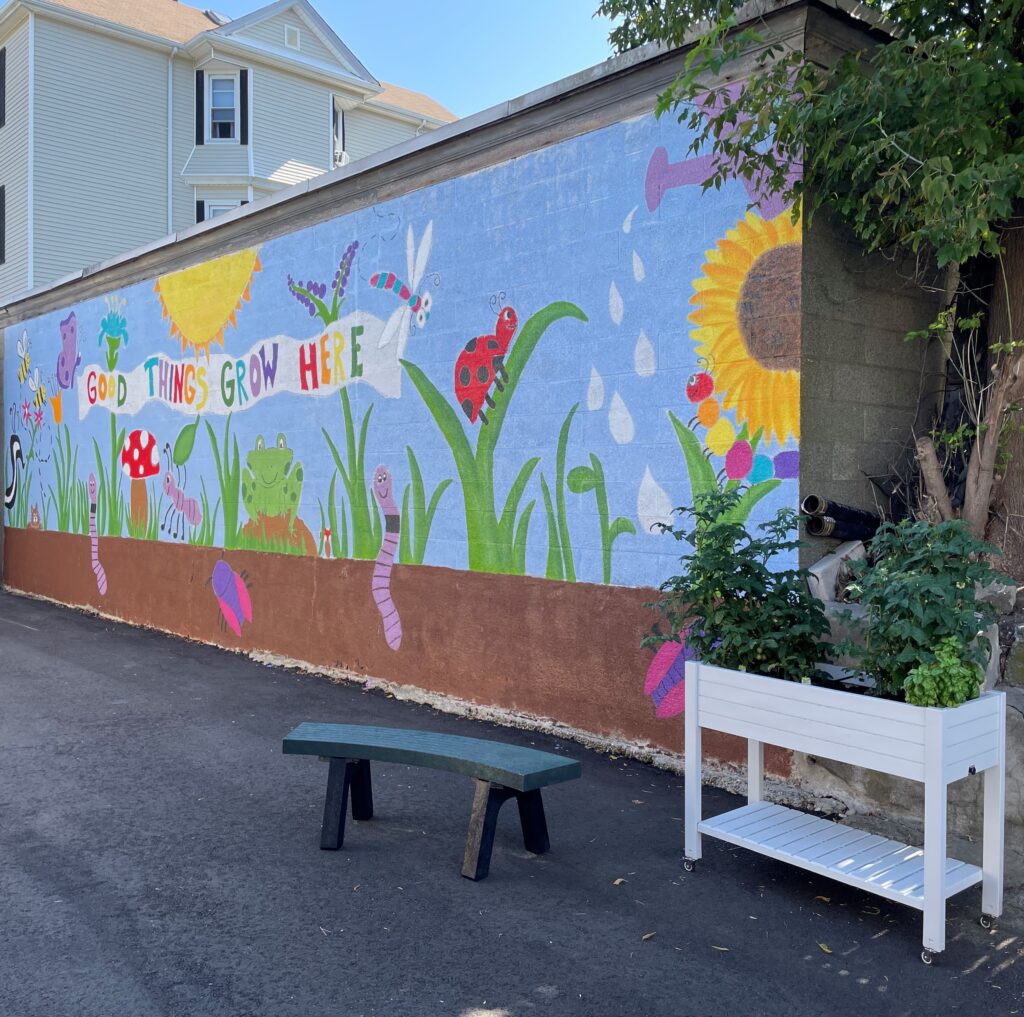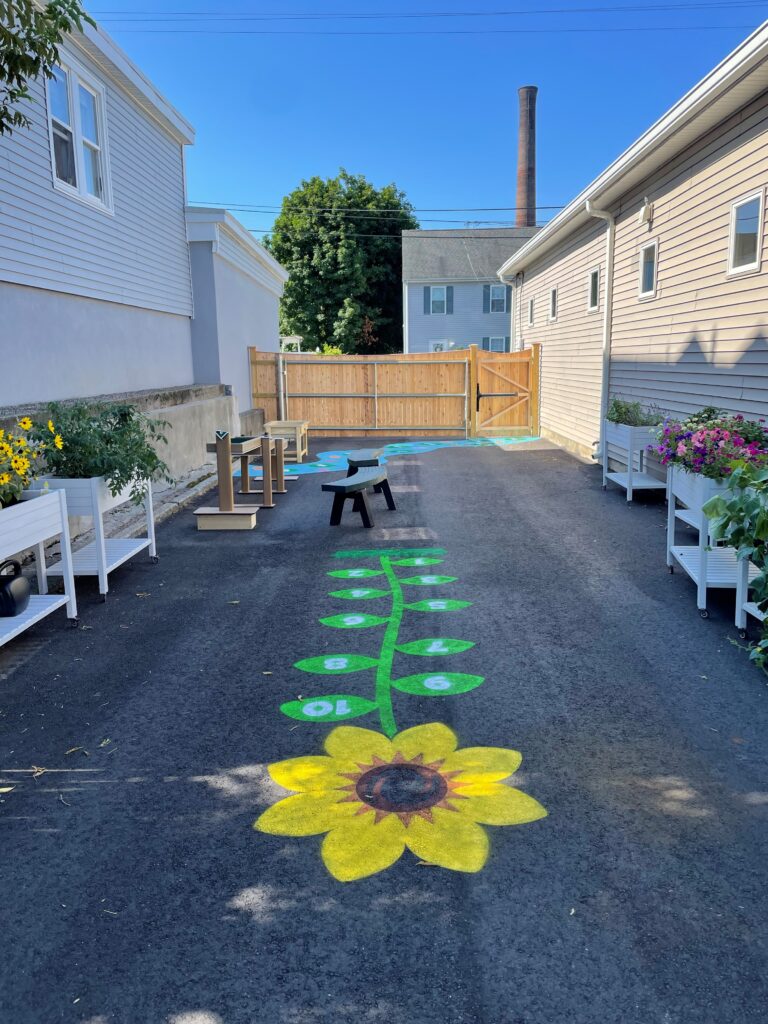Skip to content
The Children’s Advocacy Center of Bristol County is committed to providing a supportive journey of healing. Swift and early connection to mental health is one of the primary determinants of resiliency from a childhood traumatic experience.
The Healing & Resiliency Program
- HARP, launched in July of 2018, was developed in response to a growing need to treat children who have been exposed to potentially traumatic events such as physical or sexual abuse, witness to domestic violence, or a recent disclosure of physical or sexual abuse. Children who come to the CAC, and who have experienced a recent traumatic event, may be at risk to develop posttraumatic symptoms, which can affect the way he/she thinks, feels, and behaves.
- Family advocates speak with caregivers about the immediate and long-term effects of child abuse-related trauma to children, as well as the stress a family may experience in many areas of their life following the disclosure of abuse.
- Mental health referrals are provided to clinicians at the CAC as well as mental health clinicians in the larger community who are trained and credentialed in trauma informed treatment modalities.
Our Clinicians in HARP are Trained in:
- Child and Family Traumatic Stress Intervention (CFTSI)
- Trauma-Focused Cognitive Behavioral Therapy (TF-CBT)
- Attachment, Regulation and Competency (ARC)
- Sensory Motor Arousal Regulation Treatment (SMART)
- Problematic Sexual Behavior Cognitive Behavioral Therapy (PSB-CBT)
- Eye Movement Desensitization and Reprocessing (EMDR)
- Alternative Families Cognitive Behavioral Therapy (AF-CBT)
- Trauma Center Trauma Sensitive Yoga (TCTSY)
Terms to Know:
- “HARP” – Healing and Resiliency Program
- In-house mental health services that provides assessment and outpatient therapy services to child and adolescent victims of sexual abuse, physical abuse, and other crime-related trauma.
- HARP services are free of charge to any child that meets the clinical criteria.
- “PSB” – Problematic Sexual Behavior
- Developmentally inappropriate behavior initiated by a child under 18 involving sexual body parts in a manner that is potentially harmful to themselves or others.
- Illegal sexual behaviors per local and/or national statutes.
- “PSB-CBT” – Problematic Sexual Behaviors – Cognitive Behavioral Therapy
- An evidenced based model created to teach appropriate and respectful ways to respond to sexual behaviors and boundaries.
- In PSB-CBT treatment, a parent/caregiver must be involved in the 16-22 session, group or family based model.
- This is a highly effective clinical intervention with 2% recidivism rate
- “CFTSI” – Child and Family Traumatic Stress Intervention
- A brief (5-8 session), evidence-based early mental health treatment specifically developed for children, adolescents, and their caregivers during the initial phase of trauma response (after a recent traumatic event or after a recent disclosure of abuse in a forensic interview).
- “TF-CBT” – Trauma-Focused Cognitive Behavioral Therapy
- An evidence-based treatment to address youth (ages 3-18 years) posttraumatic stress disorder (PTSD) and related difficulties. It is a components- and phase- based treatment that therapists provide individually and in parallel to youth and their parents/caregivers, with additional conjoint child-parent sessions.
- “ARC” – Attachment, Regulation and Competency
- ARC is a core components model for treatment of complex traumatic stress in children, adolescents, and caregivers. Designed to translate across service systems, ARC addresses the developmental impacts of complex trauma in childhood, and works to support the core facilitators of resilience.
- Sensory Motor Arousal Regulation Treatment (SMART)
- SMART stands for Sensory Motor Arousal Regulation Treatment, an innovative mental health therapy for children and adolescents who have experienced complex trauma to help them with emotional, behavioral, and interpersonal regulation.
- Eye Movement Desensitization and Reprocessing (EMDR)
- A structured therapy that encourages the patient to briefly focus on the trauma memory while simultaneously experiencing bilateral stimulation (typically eye movements), which is associated with a reduction in the vividness and emotion associated with the trauma memories.
- Alternative Families Cognitive Behavioral Therapy (AF-CBT)
- A trauma-informed evidence-based treatment (EBT) designed to improve the relationships between children and caregivers in families involved in arguments/conflict, physical force/discipline/aggression, child physical abuse, or child behavior problems.
- Trauma Center Trauma Sensitive Yoga (TCTSY)
- An evidence based treatment, grounded in both trauma theory and yoga philosophy, for complex trauma and chronic Post-traumatic Stress Disorder (PTSD) that is utilized with children, youth, and adults across the globe. We conduct international trainings and an annual certification program in the model.
Additional Information:
